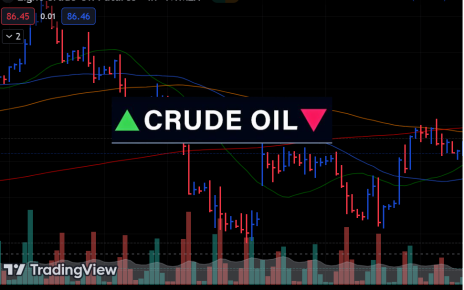- Treasury yields fell ahead of inflation readings and new government debt supply.
- crude prices dropped about 4% due to Saudi Arabia’s price cuts.
- On Friday, the S&P 500 broke a nine-week streak of gains.
On Monday, equities gained as a drop in Treasury yields lifted mega-cap stocks. Treasury yields fell ahead of inflation readings and new government debt supply, with the 10-year US Treasury yield hitting a session low of 3.966%.
The Nasdaq and S&P 500 saw their first daily percentage climbs of over 1% since Dec. 21. These were the largest one-day percentage gains since Nov. 14. The S&P 500 energy index was the only decliner among the 11 S&P 500 sectors. It fell 1.16% as crude prices dropped about 4% due to Saudi Arabia’s price cuts and an increase in OPEC output.
S&P 500 weekly performance (Source: Bloomberg)
On Friday, the S&P 500 broke a nine-week streak of gains as investors reduced expectations for aggressive Fed interest rate cuts. The shift came after mixed economic data on the labor market and services sector.
On Monday, Atlanta Fed President Raphael Bostic said that the central bank’s goals of lowering inflation and maintaining low unemployment are not currently conflicting.
Meanwhile, money markets now see a 63.8% chance of at least a 25 basis-point rate cut as soon as March, down from 88.5% a week ago. Investors will focus on inflation data, including consumer and producer prices, this week, to shape expectations for the Fed’s interest rate path.
In European markets, equities rebounded, led by technology and retail stocks, while energy shares fell due to lower crude oil prices. The European benchmark recorded its first weekly decline in eight weeks.
Despite hopes for rate cuts in 2024, recent mixed global economic data has reduced expectations for future policy rate cuts. German industrial orders rose less than expected in November, but investor morale in the eurozone improved for the third consecutive month in January.
In the UK, the FTSE 100 underperformed European markets on Monday, as lower oil prices affected energy stocks. Investors also awaited the start of the earnings reporting period and economic data this week.
In the first week of 2024, UK stocks declined, with FTSE 100 falling the most since November and FTSE 250 the most since early October. Goldman Sachs predicts the FTSE 100 will rise to 7,900 over the next 12 months, indicating a roughly 3% gain from current levels.





